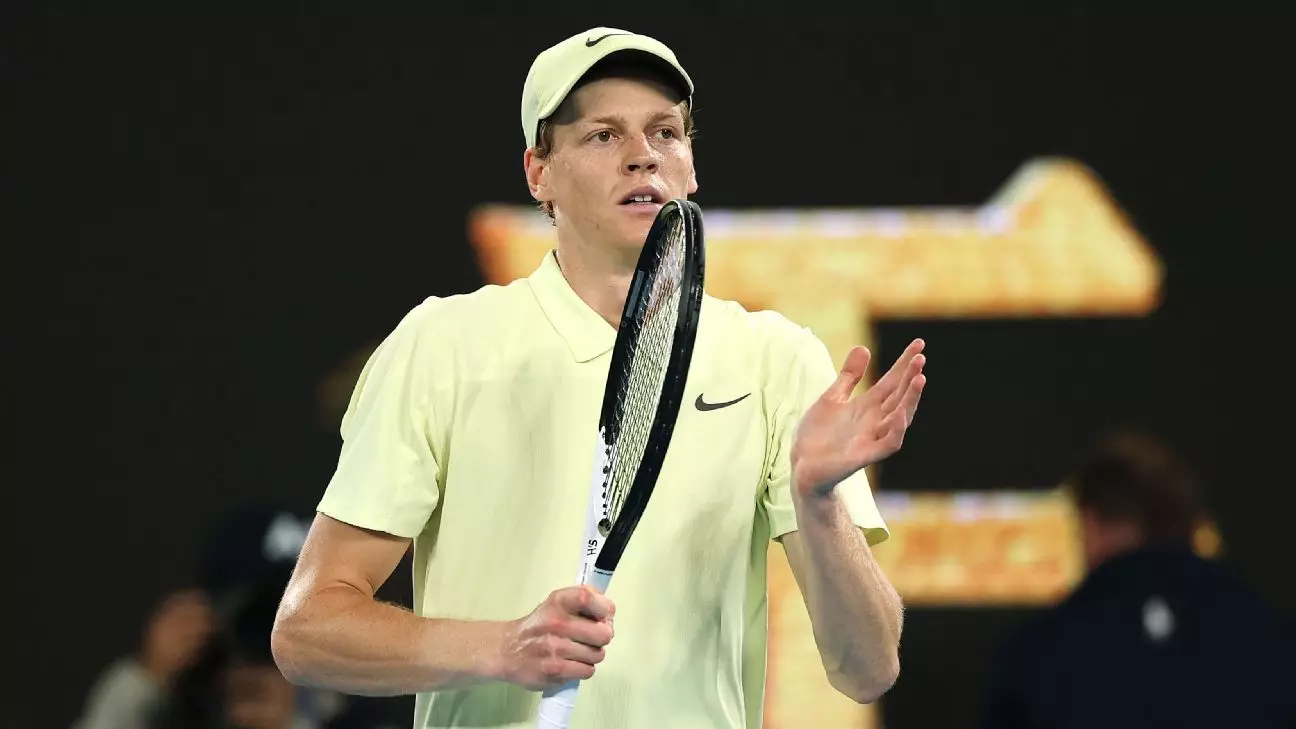The world of tennis has recently been rocked by a significant development: Jannik Sinner, currently under a three-month suspension for doping violations, has been withdrawn from an exhibition event in Las Vegas, initially scheduled for next month. This suspension stems from two failed drug tests for a banned substance, an anabolic steroid known as clostebol, leading to speculation and scrutiny regarding the integrity of athletes. Following an agreement with the World Anti-Doping Agency (WADA), Sinner’s absence has reallocated spots at the MGM Rewards Slam to substitute players, including Casper Ruud – a shift that not only highlights Sinner’s predicament but also signals potential changes in the competitive dynamics within men’s tennis.
With Sinner’s departure, Casper Ruud is set to join prominent players like Alexander Zverev, Taylor Fritz, and Tommy Paul at the highly anticipated event at the Mandalay Bay Resort and Casino. Ruud, who has experienced his own ups and downs on the ATP tour, now has an unexpected opportunity to showcase his skills in front of a live audience. This event could also serve as a platform for Ruud to build momentum heading into the clay season where he has traditionally performed well. Substituting for Sinner may provide Ruud a chance to seize the spotlight, but it also raises questions regarding how much an athlete’s reputation can be affected by the choices and actions of others, as we navigate the ramifications of doping suspensions.
This situation doesn’t merely affect Sinner on a personal level; it carries significant implications for the tennis community at large. While Sinner’s suspension allows him to return just before the prestigious Rome Masters, the incident emphasizes the ongoing challenges around doping in sports. Juxtaposed to his recent triumphs, including clinching three major titles in five tournaments, the revelation of these doping tests casts a shadow over his achievements, prompting discussions about fairness and accountability in athletics.
Moreover, the absence of a known champion in the Las Vegas exhibition could dampen interest among fans and sponsors alike, as Sinner had quickly risen as a fan favorite. As the tennis world eagerly anticipates the upcoming Grand Slam season, all eyes will be on how athletes like Ruud and Zverev may capitalize on this unexpected shift, potentially reshaping the narrative of competition.
Sinner’s ban concludes just before the French Open, a fortunate break that could act as a silver lining amidst the turmoil. Returning to the circuit after such a controversy will be a delicate balancing act for the young Italian, who must restore his reputation while performing at an elite level. The wider tennis community, keenly watching his journey, may also use this situation as a cautionary tale about the importance of diligence and transparency in maintaining the sport’s integrity.
The fallout from Sinner’s suspension serves not only as a personal setback but also as a reflection of the inherent challenges faced by professional athletes in maintaining their image and navigating competitive pressures in a high-stakes environment. As players adjust to this new reality, the impact will resonate throughout the entangled world of professional tennis, illustrating how quickly fortunes can change.


Leave a Reply